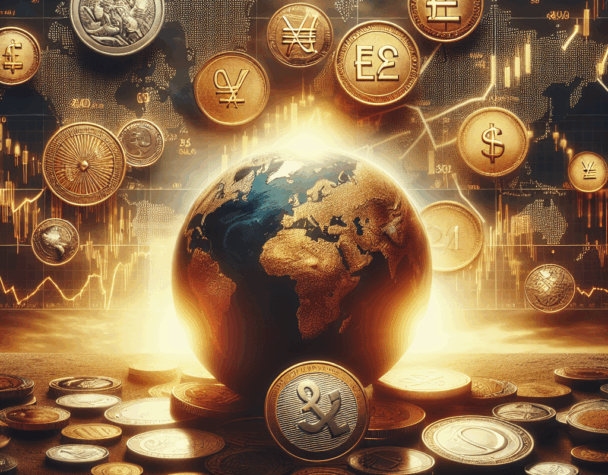
Global Currency Markets React to U.S. Dollar Decline and Geopolitical Tensions
Tue, July 01, 2025U.S. Dollar Hits Three-Year Low Amid Political Uncertainty
The U.S. dollar has fallen to its lowest value in over three years, decreasing about 10% this year. This decline is attributed to investor concerns over the Federal Reserve’s independence following political interference, including President Donald Trump’s criticism of Fed Chair Jerome Powell and suggestions of alternative candidates aligned with his economic agenda. These actions have raised fears of politically motivated monetary policy and potential interest rate cuts, leading to a loss of confidence in the dollar’s stability. No love for the dollar as markets fret about Fed independence
Central Banks Diversify Reserves Away from U.S. Dollar
In response to the dollar’s decline and geopolitical uncertainties, global central banks managing a combined $5 trillion in reserves are increasingly diversifying their holdings. A recent report by the Official Monetary and Financial Institutions Forum (OMFIF) reveals that a net 40% of central banks plan to increase gold holdings over the next decade, the highest level in five years. The euro has become the most in-demand currency for near-term reserve increases, with a net 16% of banks planning to raise euro holdings, followed closely by China’s yuan. Over the next decade, the yuan’s share of global reserves could triple to 6%. Central banks eye gold, euro and yuan as dollar dominance wanes
Hong Kong Intervenes to Defend Currency Peg
On June 26, 2025, the Hong Kong Monetary Authority (HKMA) intervened in the foreign exchange market, spending HK$9.4 billion (US$1.2 billion) to support the Hong Kong dollar as it approached the lower limit of its trading band at HK$7.85 per US dollar. This move aims to maintain the currency peg and has already pushed the overnight interbank lending rate to 0.0375%, its highest since mid-May. Despite the intervention, analysts believe the carry trade remains viable due to persistent capital inflows and ongoing demand for the Hong Kong dollar from mainland investors and IPO activity. Hong Kong intervenes to defend currency peg
Emerging Markets Experience ‘Goldilocks’ Moment
PIMCO, a major bond fund managing $2 trillion in assets, views emerging markets (EM) as being in a “Goldilocks” moment, citing favorable conditions due to U.S. President Donald Trump’s unpredictable policies that have weakened the dollar and spurred a shift away from U.S. investments. This trend has led to record inflows into EM local currency debt, with emerging market stocks outperforming the S&P 500 by 10 percentage points in 2025. EM local currency bonds have also returned over 11% in dollar terms. Net capital inflows to EMs are projected to reach $935 billion in 2026, up from $887 billion in 2025. Bond giant PIMCO sees emerging markets in ‘Goldilocks’ moment
Asian Currencies Weaken Amid Middle East Conflict
Investor sentiment towards Asian currencies has weakened due to the ongoing conflict between Israel and Iran, which has elevated oil prices and bolstered demand for the U.S. dollar as a safe haven. A Reuters poll indicates that bullish positions in the South Korean won, Taiwan dollar, Indonesian rupiah, and Malaysian ringgit have slightly declined. Rising oil prices are particularly problematic for oil-importing Asian economies, exacerbating current account deficits. The poll also showed a shift to bearish positions on the Philippine peso for the first time since March, due to its vulnerability to oil shocks and successive interest rate cuts by the central bank to support growth. Asia FX bulls retreat after Middle East conflict dents risk appetite: Reuters poll
Conclusion
The global currency markets are experiencing significant shifts due to a combination of political uncertainties, central bank policies, and geopolitical tensions. The decline of the U.S. dollar has prompted central banks to diversify their reserves, while emerging markets are benefiting from increased capital inflows. However, conflicts such as the Israel-Iran situation are impacting investor sentiment in Asian currencies. As these dynamics continue to evolve, market participants will need to stay vigilant and adapt to the changing landscape.

